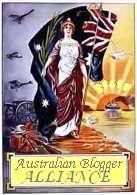COURAGE, TAKE A LEAP, YOUR COURAGE WILL SEE YOU THROUGH.
Lost love, not gangland violence, is still behind most contract killings, writes Jason Dowling.
Life is cheap in Melbourne's gangland war, and some lives are cheaper than others. The war has exposed the business side of contract killings - but surprisingly, contract killings most commonly involve ordinary people attempting to solve relationship problems.
Not long ago, an Adelaide woman stood at the gate of her children's primary school and asked if anyone knew of someone who could kill her husband.
Detective Inspector John Venditto, a homicide inspector with the South Australian Police, has co-written the first study of contract killings in Australia, and what he believes to be the largest ever study of contract killings in the world. Inspector Venditto said contract killings were most commonly organised by "ordinary people trying to sort out their problems by killing people".
The report, which he produced jointly with Jenny Mouzos for the Australian Institute of Criminology in Canberra, examined 163 cases from 1989 to 2002 and found the average price for a contract killing in Australia was $16,500, the lowest amount was $500 the highest $50,000.
Inspector Venditto said the amounts of money reportedly being offered in Melbourne were incongruous with his research, but added people in the higher echelons of organised crime would have a greater ability and motivation to pay. Victoria's gangland war could be pushing up the price of contract killings, he said.
A Melbourne court heard last week that Mario Condello, who is charged with conspiracy and incitement to murder, offered a police informer $500,000 to kill three underworld figures, Carl Williams, his father George and a bodyguard. The payment would be $150,000 each plus a bonus $50,000. Others in Melbourne over the past two years have offered far less.
If a leaked Victoria Police intelligence report is accurate, one hapless target can even command different prices from different people at different times. The leaked report, dated June 2002, said Lewis Moran was offering $50,000 for the contract killing of Carl Williams. Following Moran's murder and the escalation of the gangland war, Condello was prepared to pay three times this amount for the same contract.
Condello's alleged offer was also $50,000 more than what police suspect Andrew Veniamin, former bodyguard to Williams, was paid for murders he is believed to have been involved in.
Still, the $150,000 is a lot less than the $400,000 that was rumoured to have been put on Mick Gatto's head after his shooting of Veniamin.
The price for contract killings in Melbourne has escalated as the targets in the gangland war have become more senior and the opposing criminal networks more desperate.
"The contract price is commensurate with the ability of the instigator to pay, and if these guys have big money because they are involved in drugs then they have got big money to pay contracts," Inspector Venditto said.
He said the most paid for a contract killing by organised crime figures in the AIC report, concluded before Melbourne's gangland war was in full swing, had been $10,000, and the most offered by anyone for a contract killing had been $50,000.
"If they have got the means to pay, that is how they name their price," he said.
Inspector Venditto said a contract killing is defined as a murder in which "a third party is engaged to do the killing and the instigator is not present".
The difference in price for contract killings could be explained by the different motives and types of people involved with contract killings. Ordinary people he said, had less money to pay big contracts.
The most common motive Inspector Venditto found in his survey was the dissolution of a relationship. The next highest motivation was for money, then to silence a witness, followed by an underworld crime struggle.
Inspector Venditto said one of the most frequently asked questions with contract killings was "where do people find a hitman". He said organised crime figures, who orchestrated almost 10 per cent of completed contract killings, were able to openly solicit for a contract killer with little chance of being reported to police.
But in areas such as relationship breakdowns or revenge murders, the number of instigators reported to police before the murder was high.
Inspector Venditto said this was because it was difficult for ordinary people to find killers.
"There are so many ordinary people involved in it, they make up most of the people hiring hitmen," he said. "They go to someone they think will know a hitman.They go to people who are generally not criminals and these people go to the police."
Last year, Dorothy Marie Skura of North Road, Brighton East, was sentenced to seven years' jail after offering an undercover police officer $25,000 to kill her husband.
A man she had approached at a boarding house had tipped off police. Ms Skura's motive was to collect on her husband's life insurance policy and return home to Canada.






0 Comments:
Post a Comment
Subscribe to Post Comments [Atom]
<< Home